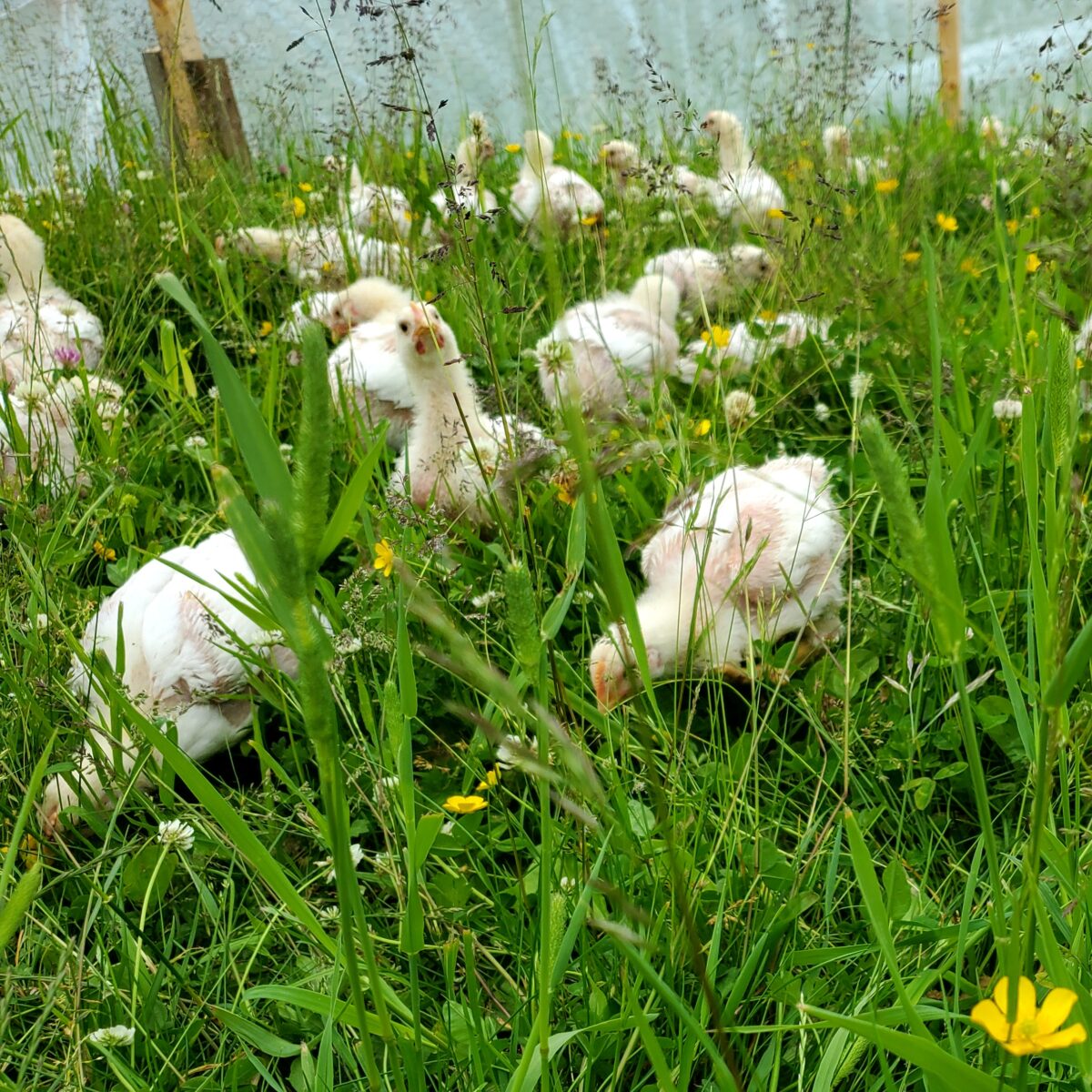Grant Program Overview
The Northeast SARE Farming Community Grant applies social science research and education projects that strengthen farming and food systems at the community level.
These projects explore innovative approaches to improving the health and sustainability of agricultural communities in the Northeast. This program supports projects that are grounded in community partnerships and informed by the lived experiences of farmers. It encourages collaboration among farmers, service providers, researchers, and nonprofit organizations to co-create solutions that are responsive to local needs and scalable across the region.
Question and Answer Sessions
Large Grant Programs
Northeast SARE staff concluded their Q&A sessions on the four large grant programs: Farming Community, Professional Development, Research & Education, and Research for Novel Approaches.
Here is a copy of the presentation shared.
You can view the session recordings at the links below:
We've compiled questions from all rooms into a running FAQ document.
This FAQ is a live resource that includes information from the introductory session and each breakout discussion. You can use Ctrl+F to search by keyword and browse tagged topics.
For additional questions, please reach out to the Grant Administrator to the program you are interested in applying to, or northeast-large-grant@sare.org if you are still unsure. Please do your best having reviewed the CFP and Appendices in their entirety before reaching out with questions, many things are answered there!
Grant Administrators are seeing a high volume of inquiries, so please be patient with a response time as it may take several days.
Funding Available
Northeast SARE’s Administrative Council allocated approximately $3,300,000 to fund projects for this cycle of farming community grants. There is no cap on total grant requests, however, requests typically fall between $50,000 and $250,000.
Technical Assistance Program
Applicants and grantees of the Farming Community Grant Program are eligible for Technical Assistance (TA) provided by Northeast SARE’s Technical Assistance Providers.
Farming Community Grant Program Materials
-
Call for Proposals
The Call for Proposals is now open.
-
Budget Template
A completed budget using this template is part of the application process. Budget Template will auto-download when clicked.
-
Grant Commitment Form
A completed Grant Commitment Form is required as part of the application process. Form will auto-download when clicked
-
Reviewer Rubric
Rubric for Farming Community Grant Program Proposals

Farming Community Grant Call Open
The Call for 2026 Farming Community Grant proposals is now open. Proposals are due by 5 p.m. on February 23, 2026.
View CallUpcoming Grant Deadlines
2026 Farming Community Grant Proposals - Due 5 p.m. EST, February 23, 2026
Sign up for the Innovations newsletter to stay up-to-date on grant calls and deadlines.
Which grant program is the best fit for my project?
Visit our
grant comparison chart
to take a quick side-by-side look at our grant programs.
Resources and References
Organizational Definitions
Legislative Priorities
All Northeast SARE grants must fit within one or more of SARE's Legislative Priorities that encourage research to increase knowledge concerning agricultural production. These priorities include:
● maintaining and enhancing the quality and productivity of the soil;
● conserving soil, water, energy, natural resources, and fish and wildlife habitat;
● maintaining and enhancing the quality of surface and ground water;
● protecting the health and safety of persons involved in the food and farm system;
● promoting the well-being of animals; and
● Increasing employment opportunities in agriculture.
Farmer Impact
Projects having a significant impact/impression on farmer's and farming communities is also critical. Impact can be economic, social, environmental etc. For example:
- How does the research support farmer/farming community livelihoods?
- How does the research build strong economies through local and/or regional trade?
- How does the research improve crop production?
For impact, replicability is important. Replicability is the ability of another farmer or farming community to obtain similar results when applying the same method (s). In other words, another farmer can utilize the results of the research to benefit their farming practices of behavior.
Outcome Statement
"Northeast agricultural communities honor the holistic connection among land, water, air, and all living beings. Agriculture in the Northeast is sustainable so that all farmers and farm employees can steward resources to ensure sustainability, resilience, economic viability, and a high quality of life."
Innovation
Innovation is defined as the development or adoption of new concepts or ideas and the successful exploration of new ideas. Ideation is the basis of creativity. The process of creative ideation develops new concepts; Innovation applies them. Creativity can only emerge when an innovator takes the idea and puts it into practice. Innovation can also be social and develop and implement novel and effective solutions to meet social and environmental challenges. The results should improve the welfare and well being of individual farmers and farming communities and reproducible. Within the scope of Northeast SARE, examples can include, but are not limited to:
● The introduction of a new behavior/practice, one with which farmers are not yet familiar
● The introduction of an improved or better agricultural behavior/practice, which may not be new, but is an improvement upon what occurred before.
● The opening of a new market that has not been entered previously, whether this market has existed previously.
● A new source of supply of materials or goods, again irrespective of whether this source already exists or whether it has first to be created.
● Improved organizational structure and/or capacity.
Northeast SARE encourages innovative solutions to challenges in farming and food systems in the Northeast USA, including but not limited to the areas of:
- Marketing and business
- Crop production
- Raising livestock
- Aquaculture
- Economic and social sustainability
- Ecological knowledge
- Projects related to climate and/or bioenergy work that provide direct or indirect benefits to farmers and ranchers
- And more.
Northeast SARE does not support:
- Educational programs for the general public
- Food donation efforts
- General public awareness campaigns about agriculture and nutrition
- Community or school gardening initiatives
Questions?
Contact northeast-fc@sare.org with any additional questions.